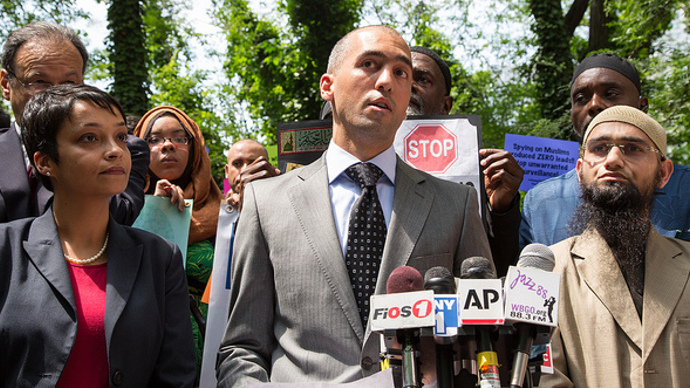The FBI Monday reportedly delayed publishing a long-awaited website under the auspices of Countering Violent Extremism amid concerns voiced by Muslim rights groups uncomfortable with the program’s apparent disproportionate focus on Muslims.
The website, dubbed “Don’t Be a Puppet,” was reportedly designed as a tool for teachers and students in school districts in America. The concept shares similarities with Countering Violent Extremism (CVE) efforts in several big cities focused on using the public to better identify people deemed susceptible to extremism. Such programs have been criticized by civil liberties groups, who argue that law enforcement is essentially outsourcing policing to community members. The fear is that such practices could cast suspicion on Muslim communities for no reason other than their religion, and doing so could erode trust between the community members and law enforcement.
The FBI has yet to publicly comment on the website, but a New York Times article published online Sunday described it as an “interactive program” replete with “games” and “tips” that, in theory, would help a user—either a student or a teacher—single out people vulnerable to extremist ideology.
The need for community-related anti-extremism programs have intensified as a result of the Islamic State’s success in recruiting members around the world on social media. Muslim rights groups argue, however, that people are drawn to radical views in very different ways, thus the science of countering violent extremism is flawed.
Concern over the FBI’s latest project came from several Muslim and Arab rights group who were given a preview of the software.
“The program is based on flawed theories of radicalization, namely that individuals radicalize in the exact same way and it’s entirely discernible,” Arjun S. Sethi, an adjunct professor of law at the Georgetown University Law Center, told the Times. “But it’s not, and the F.B.I. is basically asking teachers and students to suss these things out.”
The groups with access to the website also objected to its apparent sole focus on Muslims.
The Washington Post, which first reported on the temporary delay, also spoke to people who had reviewed the site, and noted:
“Experts disagree on what might be clear triggers for young people, similarly to the cases of dozens of non-Muslims who have perpetrated the U.S. epidemic of mass shootings.”
The Council on American-Islamic Relations in a statement Monday said the program, as reported, could have an adverse effect on Muslim students.
“The FBI’s job is to protect children of all faiths and backgrounds, not to offer programs that introduce suspicion into their relations with teachers and can lead to stigmatization and bullying by their peers,” said CAIR Department to Monitor and Combat Islamophobia Director Corey Saylor.
When the White House hosted a CVE in summit earlier this year, civil liberties groups questioned why white extremists groups didn’t undergo similar scrutiny. They pointed to a study published by the National Consortium for the Study of Terrorism and Responses to Terrorism at the University of Maryland, which found law enforcement’s chief concern is not related to Islam but the sovereign citizens movement.
“Approximately 39 percent of respondents agreed and 28 percent strongly agreed that Islamic extremists were a serious terrorist threat,” the study noted. “In comparison, 52 percent of respondents agreed and 34 percent strongly agreed that sovereign citizens were a serious terrorist threat.”
None of this is new to many Muslim communities, neither are their objections to policies that they say foster distrust. Police departments such as the NYPD have placed informants in mosques and have spied on neighborhoods with large populations of people who’ve emigrated from the Middle East, including on Long Island. The unit that spied on Muslims on LI, the five boroughs and New Jersey has since been disbanded.
It’s unclear when or if the FBI will decide to unveil its new website, which was originally scheduled to go live Monday, according to reports.
(Photo Credit: American Civil Liberties Union)



































